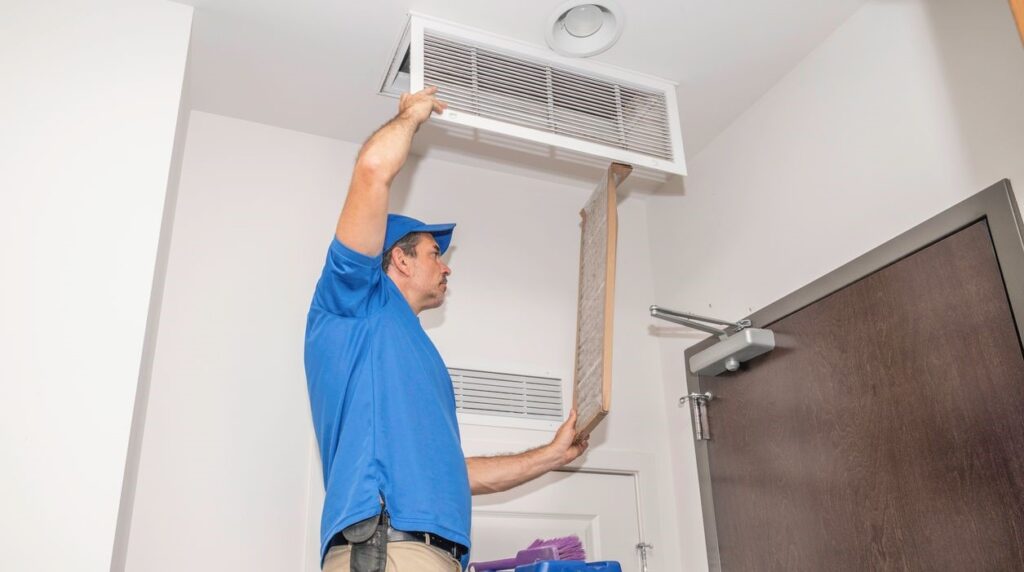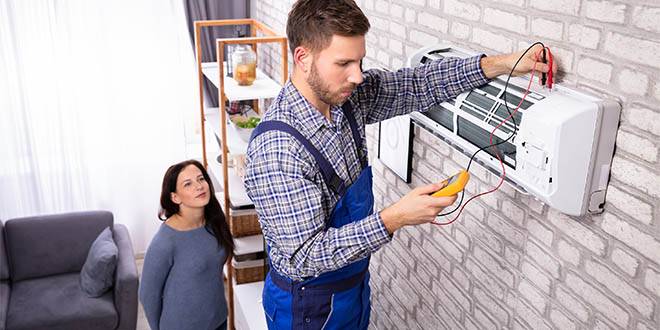Ensuring good air quality in your home or business is essential for health and comfort. However, one common issue that can affect air quality is the presence of duct odors. Understanding the causes of these odors and how to address them is vital. This article provides a step-by-step guide to help you tackle duct odors and improve air quality effectively.

Understanding Air Quality and Its Importance
Air quality refers to the cleanliness and healthiness of the air we breathe. Poor air quality can lead to health issues such as allergies, asthma, and other respiratory problems. Maintaining good air quality is crucial for the well-being of everyone in your home or business environment.
Causes of Poor Air Quality
Poor air quality can be caused by various factors, including pollution, dust, mold, and odors from HVAC systems. Understanding these causes is the first step to improving air quality.
What Are Duct Odors?
Duct odors are unpleasant smells that originate from your HVAC system’s ductwork. These odors can spread throughout your home or business, affecting air quality and comfort.
Common Causes of Duct Odors
There are several reasons why your ducts might emit odors. These include mold and mildew growth, dust accumulation, pest infestations, and even dead animals trapped inside the ducts.
Step-by-Step Guide to Improving Air Quality and Eliminating Duct Odors
Step 1: Identify the Source of the Odor
The first step in addressing duct odors is to identify their source. Check for visible signs of mold, mildew, or dust accumulation. A professional inspection can help identify less obvious issues, such as dead animals or pest infestations.
Step 2: Clean and Maintain Your Ducts
Regular cleaning and maintenance of your ducts can prevent odors and improve air quality. This involves removing dust and debris, cleaning mold and mildew, and sealing any leaks. For detailed guidance, consider reading more about fixing smelly vents on our website.
Step 3: Use Air Purifiers
Air purifiers can effectively remove pollutants and improve air quality. They work by capturing airborne particles and neutralizing odors, providing clean and fresh air.
Step 4: Regular HVAC Maintenance
Regular maintenance of your HVAC system, including filter changes and system checks, can prevent duct odors and ensure optimal performance. For more on this, visit remove musty smell on our site.
Preventing Future Duct Odors
Install Dehumidifiers
High humidity levels can lead to mold and mildew growth, which causes odors. Installing dehumidifiers can help prevent this, maintaining both air quality and comfort.
Seal and Insulate Ducts
Sealing and insulating your ducts can prevent pests and moisture from entering, reducing the risk of odors and improving air quality.
Consulting Professionals
If you’re unable to resolve duct odors on your own, consulting a professional can be beneficial. They can provide thorough inspections, cleaning, and maintenance services to ensure your HVAC system is free from odors.
For expert advice, check out this external resource: bad AC smells explained.
When to Call a Professional
If you notice persistent duct odors despite your efforts, it’s time to call in a professional. They have the tools and expertise to address complex issues that might be beyond the scope of DIY solutions.
Conclusion
Maintaining good air quality and eliminating duct odors is crucial for a healthy and comfortable environment. By understanding the causes and following these steps, you can effectively tackle this issue and ensure fresh, clean air in your home or business.

FAQs
How often should I clean my ducts?
It’s recommended to clean your ducts every 3-5 years. However, if you notice persistent odors or have allergies, more frequent cleaning may be necessary.
Can air purifiers eliminate all types of odors?
Air purifiers can significantly reduce odors by removing airborne particles. However, for severe odors, addressing the source is vital.
What can I do if my HVAC system smells musty?
If your HVAC system smells musty, consider checking for mold growth and cleaning the system. For more solutions, visit our page on air conditioning smells bad.
This article contains affiliate links. We may earn a commission at no extra cost to you.